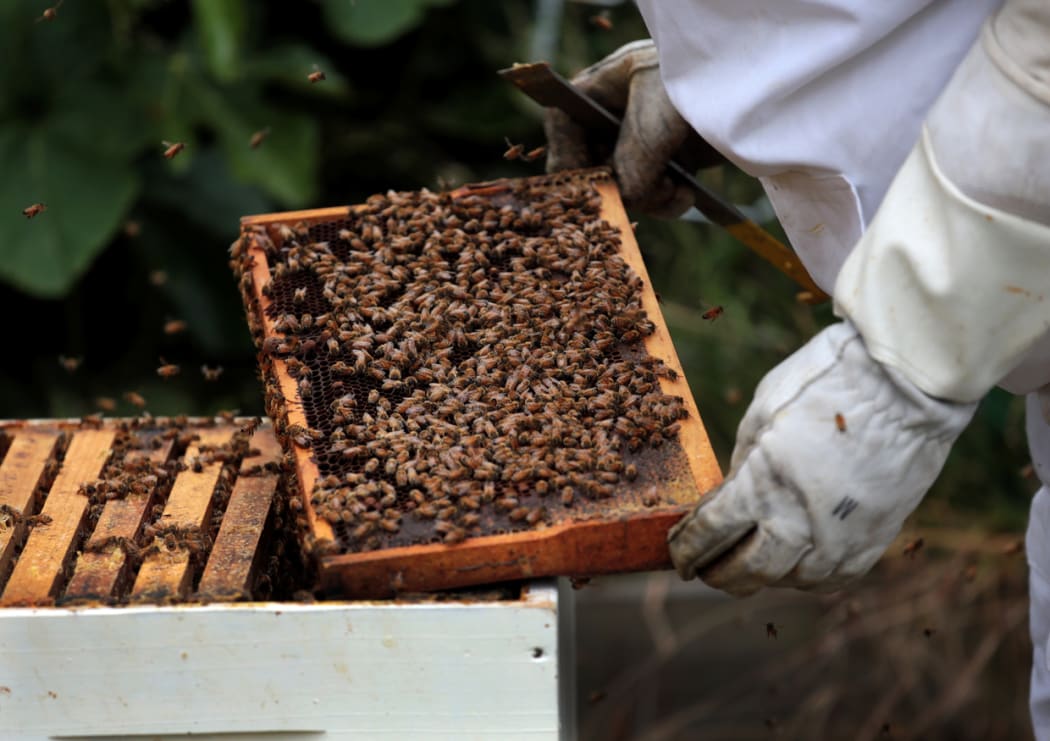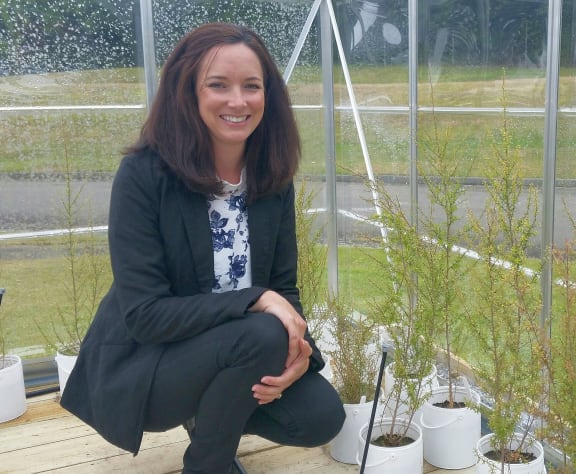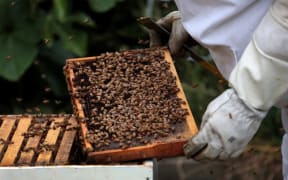New Zealand is on the verge of becoming the land of poo and honey.
Manuka honey is now big business and sending human waste to land fill seems, well, a waste.

Scientists are trying to find out which compound gives Manuka honey its germ-killing power. Photo: RNZ / Diego Opatowski
Scientists at government research laboratories are trying to find out which compound gives the honey its germ-killling power, in the hope it could allow future Manuka crops to be fertilised with sewage, without health risks.
Research scientist Jen Prosser is growing Manuka specimens and rye grass control plants at the Institute of Environmental Science and Research Kenepuru Science Centre, near Wellington.
The seedlings have been 'spiked' with various diseases to see what sort of job the anti-microbial properties in the Manuka plant does of killing the germs in the sewage that has been put on them, she said.

Jen Prosser with her Manuka plants. Photo: RNZ
This could be a good way to make use of human waste, instead of just dumping it, Miss Prosser said.
"This waste quite often just goes to landfill and the valuable nutrients could be recycled to land and put to good use."
But she said using human waste on food crops was not an easy sell.
"The idea of putting human waste on land [and food crops] can sound quite scary, but actually when you put it through the process it goes through, it's no longer the waste that it started as and is just the nutrient portion."
So far her research has shown encouraging results.
"When I did this on a smaller scale experiment the die off [of the pathogens] was quicker, a lot quicker."
"And there could be other benefits including using the Manuka and waste combination for riparian planting. Where plants are placed along rivers and streams to catch and feed-off animal waste that runs-off paddocks and into streams and rivers.
"They could prevent some of those bugs, kill them off as they are flowing through, then you're going to have less waste going in to the streams."


